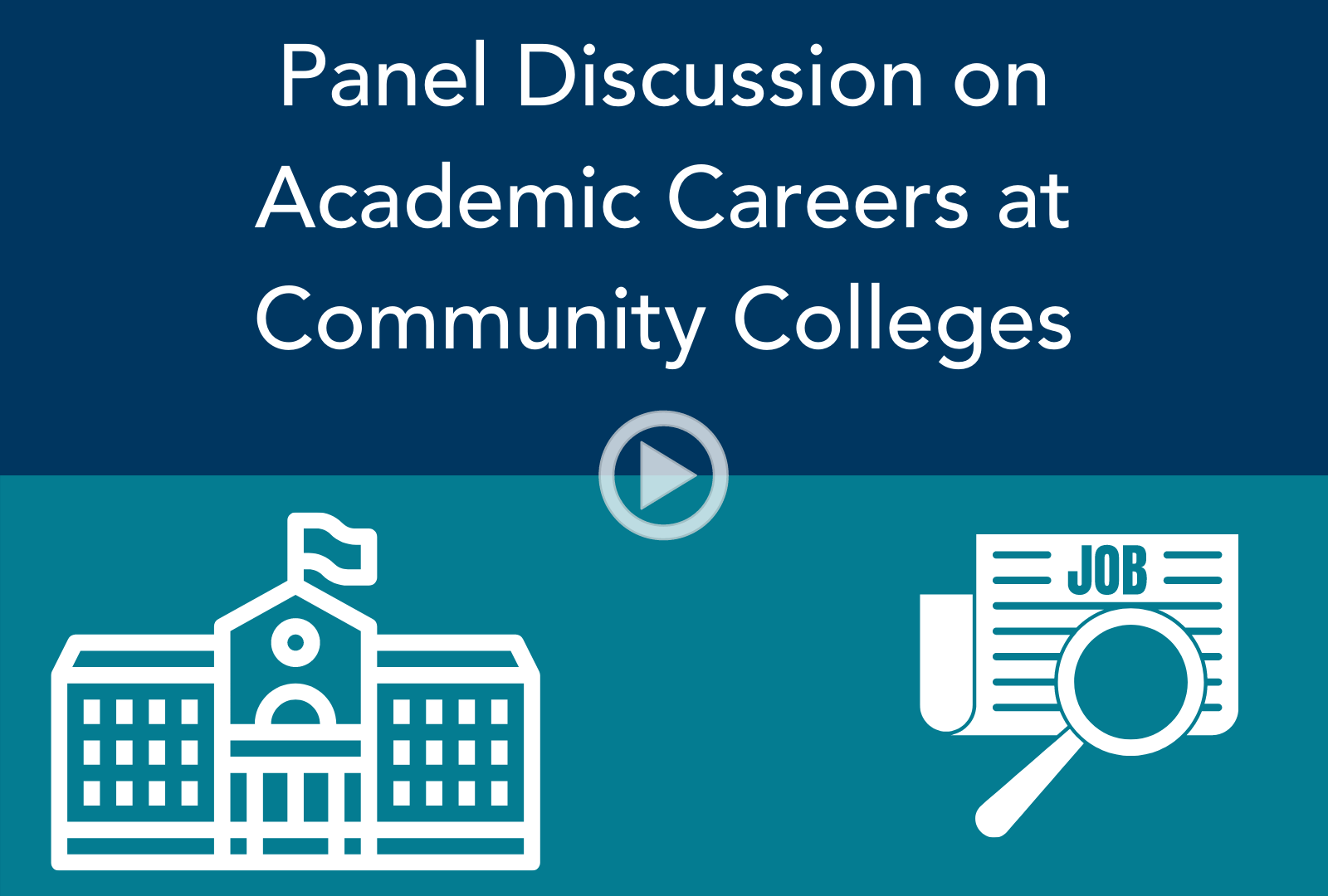Career Development
To learn more about the academic culture and teaching opportunities at community colleges, the Graduate Division recently hosted a discussion with community college professors and professionals. These experts discussed the range of opportunities these schools offer and provided some hiring tips. Read on to access a recording of the panel and some frequently asked questions.
As part of your academic job search, have you thought about a career at a community college? Consider the following:
- There are currently more than 1,200 two-year institutions in the United States, which makes them a good option for individuals with geographical constraints
- Community colleges presently account for over 40% of higher education in the United States
- Most two-year colleges are eager to attract highly qualified PhDs
To learn more about the academic culture and teaching opportunities at community colleges, the Graduate Division hosted a discussion on May 4, 2021 with a virtual panel of community college professors and professionals. These experts discussed the range of opportunities these schools offer.
To access the recording of the online webinar click here.
Additionally, below is a copy of the Q&A from the panel that may be helpful in your exploration of academic careers at community colleges. Answers from multiple panelists are included, where applicable.
Q: Professor Au mentioned that there are "application pools" for non-tenure-track positions. Are those advertised positions, or can/should applicants interested in a given community college submit CVs even when there's no advertised position?
A: It depends on the college and the need. Most part-time positions are advertised. I was also able to get some part-time positions through someone I knew passing my CV to the department chair. Networking can be very important in getting your foot in the door somewhere, especially when you're right out of grad school.
Q: I'm wondering if you might address what your life was like while you were working as an adjunct. I'm wondering how livable (both financially and otherwise) your life was while you were an adjunct, maybe trying to finish your degree, and on that marathon to get a full time tenure track job at a community college? How long did you work part time before getting a full time job?
A1: Everyone's story is different. I had a full-time job and worked part-time as a favor to the dean because it was a last minute request to me to teach.
A2: I was an adjunct for 2 years before I got a full time position, but I know folks that worked part-time for 5-10 years. You will make less money as an adjunct. Even though we are here representing the community college system, you might also consider working part time at the Cal State System. I was able to get the same health benefits as the full-time staff, when I worked 6+ units at CSU Fullerton. That was a big help for my finances.
Q: I'd love to hear more concrete advice about things that make a cover letter stand out (I made a note of Prof Buriel's great advice to use the language of the job ad). Also, any "pet peeves" that get an application set aside right away?
A1: One thing you all may want to look into, as you are gaining experience to apply to full-time positions, is education research journals. They are full of high-impact, evidence-based teaching practices that can really help you stand out as an excellent instructor. Your students will appreciate this too!
A2: One thing that might make your application stand out in the wrong way would be to overly emphasize your discipline research (instead of teaching). Since research isn't going to be your primary responsibility at a community college, it should be a smaller part (or absent) from a community college application.
Q: In my field, it's standard for recommendation letters to be confidential. But I've heard of community colleges that require letters to be emailed/uploaded by the applicant themselves. Is that common - and is there any work-around for that when applicants don't have access to the letters?
A: I think that varies between institutions. As an applicant, when I needed to upload the letters directly, I just asked the folks who were writing them if that was ok, to just send them to me directly. There are many platforms where the applicant uploads the letter themselves. It would be ideal, too, if the letters could focus on teaching and/or service as much as possible.
